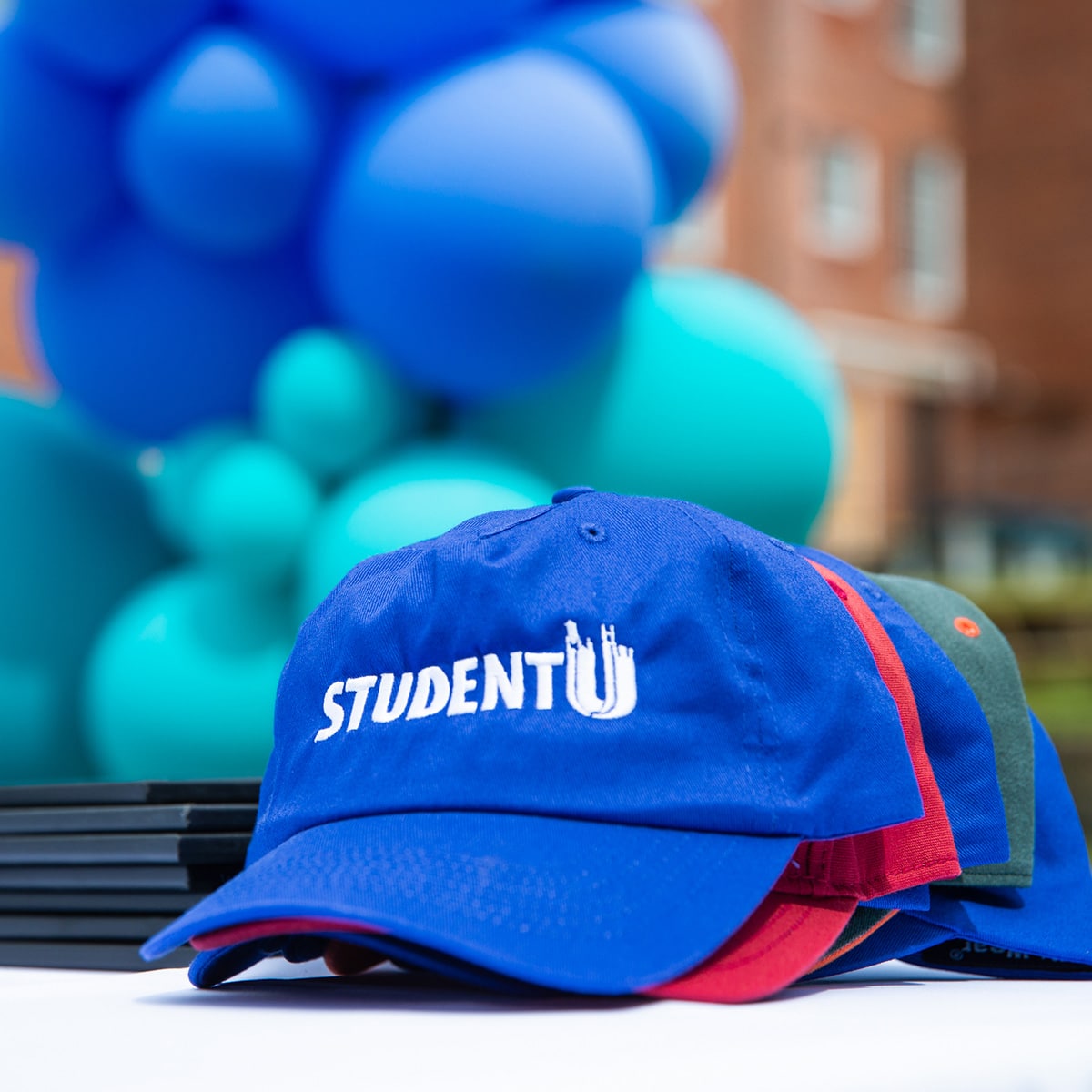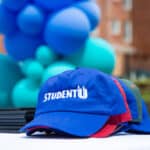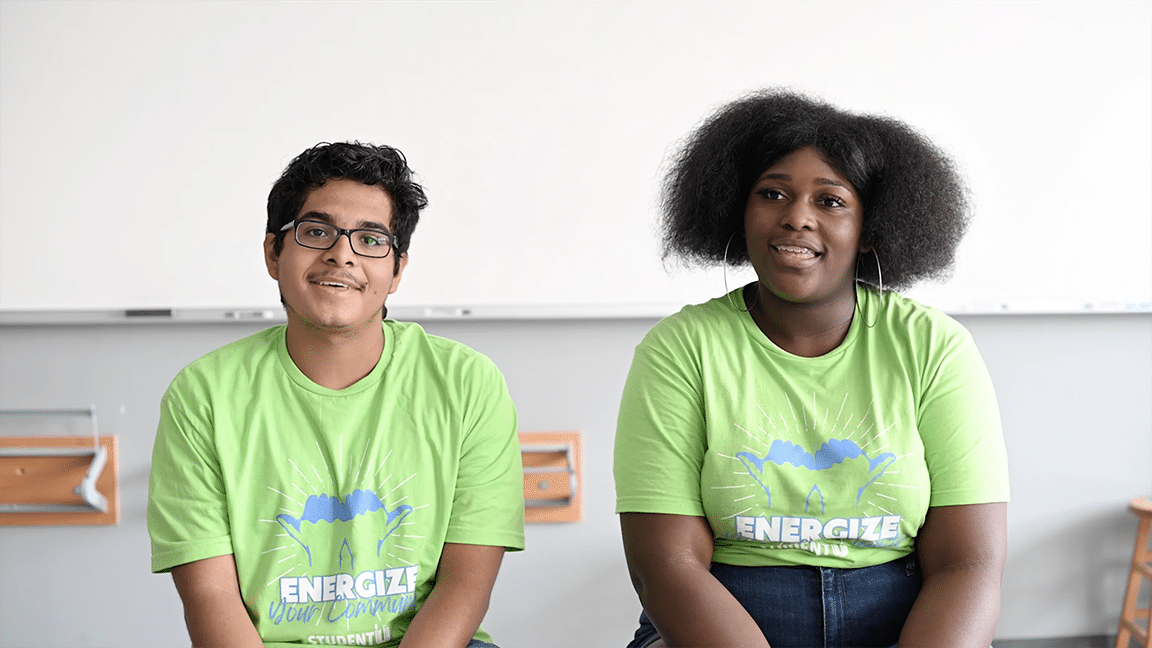
The basketball hoops in Durham Academy Middle School’s gym hung silently on the wall. Students’ passionate playing had left scattered scuff marks on the court. However, there would be no dribbling or shooting on this Tuesday in early July. Long tables circled the exterior of the basketball court, each one with two to four adults with friendly and eager grins. Behind each table was a sign, and each sign displayed a word or phrase and a corresponding image. One sign read “Transportation;” another sign read “Housing.” In total, twelve large white signs stood in the gym, with titles ranging from “Childcare” and “Groceries” to “Entertainment” and “Communications.”
The week of July 8th was Financial Literacy week at Student U. During this week, middle and high school students had the opportunity to learn firsthand what it means to be financially independent—how to responsibly manage their money. The main event was the State Employees’ Credit Union’s (SECU) The Reality of Money simulation. SECU partners with North Carolina schools and organizations to give this financial simulation activity to students. The purpose of the simulation is to provide an opportunity for students to acquire a better understanding of what it truly means to be an adult with families, jobs, car loans and other responsibilities.
SECU employees, volunteers and Student U staff members served as the facilitators of the simulation. After a brief training session, they were ready to help students navigate the complexities of adult life. The simulation consisted of giving each high school student a profile that would determine what kind of adult they were. These profiles let the students know whether they had graduated from high school or college, if they had a spouse or children, what job they had, what their salary was, what kind of credit score, etc.
Their credit score determined whether they could buy or rent a home or apartment and what kind of car they could purchase. Profiles with bad credit scores could not own a home or apartment, for example, but they could rent, which was more expensive. This concept showed students the importance of accumulating good credit due to the many benefits later on.
“I learned that it’s really important to save,” high school student D’Angelo Alvarado said about the simulation. “You don’t have to spend on what you want, but you have to spend on what you need…I could’ve bought a condo for $900 but I decided to go for an apartment because it was cheaper. And that’s how I stayed out of debt.”
Throughout the day, there were two sessions where two groups of high school students had the opportunity to navigate a series of financial circumstances while ensuring responsible money management. As one could imagine, students had not had an experience like this before and many ended up in the worst situation: broke. Fortunately, there was a table available just for that reason.
A sign labeled “Help” with four question marks underneath attracted many students throughout the simulation. The majority of the students who approached the “Help” table had found themselves with very little money and still needed to purchase necessities such as groceries or childcare. The volunteers who manned the “Help” table were instructed to review the students’ profiles, what they had purchased so far, and provide some recommendations on how to better their situation. Often, students who had decided to purchase more expensive products and services such as upscale clothing or a fancy car, were often advised to consider the cheaper options that would allow them to have money left for more important purchases. If they didn’t want to lower the quality of their purchases, students could also consider getting a second job. The amount students could earn from these second jobs depended on the education level they had received, and students were also cautioned that they could not trust that this other job would always be an option for them. Additionally, they were warned that second jobs take away from the time they would be able to spend with their children or families, if their profiles listed that they had them.
“I learned to spend my [money] wisely [and] how to spend it,” high school student Ameer Sulyans shared. “Don’t spend it on entertainment. Spend it on food first, housing, [other] stuff to survive.”
Not only did students have to purchase and manage the basic goods and services they would need as adults, they also realized that “life happens!” Another part of the simulation was having students randomly choose a card from a pile. Each card contained a different circumstance that affected their spending. Some examples of these were that their car broke down so they had to spend $200 on repairs, they were pulled over and received a speeding ticket, or other unexpected expenses. The objective of this part of the simulation was to demonstrate to students that there will be unforeseen expenses and, therefore, they should try to not live paycheck to paycheck.
Student U believes that the best way for students to reach their full potential and become real change-makers is for them to have the knowledge and resources to achieve financial security as adults. Students whose profiles listed that they had not completed high school or gone to college realized that they had much more difficulty making ends meet than those who had received higher education. Many students also became aware that being an adult comes with a number of responsibilities and can be difficult if not prepared.
“I learned that you have to be really careful with your money and you just can’t spend it…Adult life is harder than you actually think it is,” high school student Glendy Sanchez said.
Financial Literacy Week also reflected the core value of the week, “Discover your best self.” Student U expects its students to constantly work to enhance their skills and discover their passions and strengths. Student U wants its students to take risks, challenge themselves, and work to love themselves for who they are and for who they can become. With this comes gaining the financial competency necessary for students to support themselves so they can take risks and discover their best selves.









